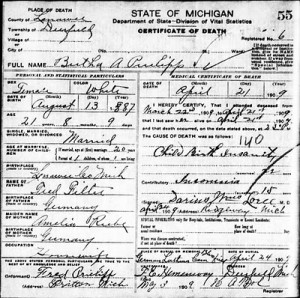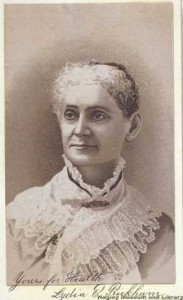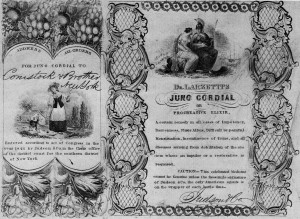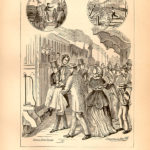Male alienists often thought that women were more susceptible to certain forms of insanity because of their female body organs (see last post). In the American Journal of Insanity, Dr. Fleetwood Churchill describes the evolution of merry childhood into womanhood, when a female becomes more serious and feels more deeply. “In short, under the influence of bodily development, her mind has expanded,” he says. In an article he published titled “On the Mental Disorders of Pregnancy and Childbed,” Churchill quotes other doctors; one noted that “insanity and epilepsy are often connected with menstruation,” and gave a case where a woman who had been confined for sixteen years, suddenly recovered when her periods ceased.
In a somewhat peculiar case in which the modern reader might find more than the doctor apparently did, a girl of 17 who had menstruated regularly for a year, suddenly stopped. Her mind became clouded, she spoke of herself as a castaway and doomed, and became completely insane. “Neither medicine nor change of air and scene did her any good,” said the doctor whom Churchill quoted. There was a happy ending, though. “The menses suddenly re-appeared, after eight or ten months absence. and she immediately recovered her mental health.”
________________________________________________________________________








I definitely found that no one seemed to know about the asylum. I lived in South Dakota for four years (a long time ago) and never heard of it, then, either. I think that there is a little more awareness now, thanks to your own efforts and some of the websites which have sprung up to discuss it. I don’t have a good feel for how much the typical Native American knows about the asylum, though I’ve found a surprising degree of interest in insane asylums in general.
Ms. Joinson, I’m glad that someone else has decided to pick up the story of the Canton Asylum. My PhD dissertation and later book, “They Called It Madness” discussed the asylum at length. I was always stunned how many people were unaware of the asylum. But when you go out into Indian Country, you find that it’s common knowledge among Indian people. Did you find the same thing to be true in your research?